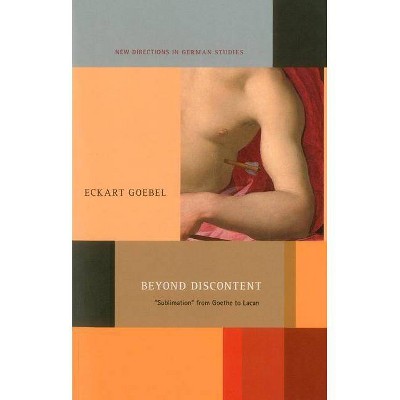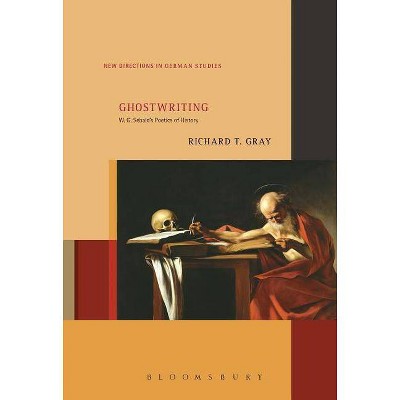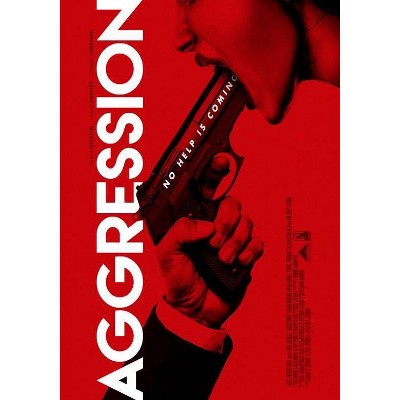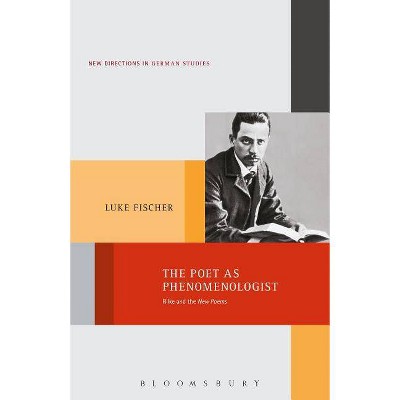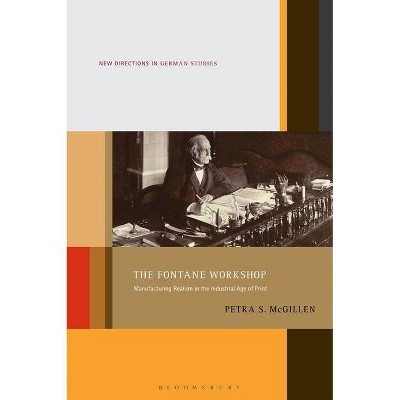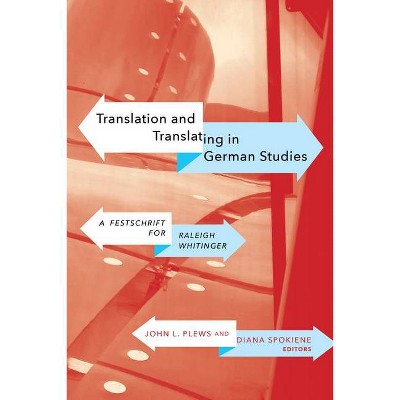Ambiguous Aggression in German Realism and Beyond Flirtation, Passive Aggression, Domestic Violence - (New Directions in German Studies) (Hardcover)
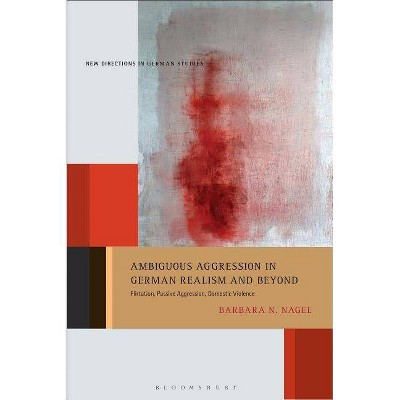
Similar Products
Products of same category from the store
AllProduct info
<p/><br></br><p><b> About the Book </b></p></br></br>Traces the literary-historical genealogy of three interlocking forms of social violence - aggressive flirtation, passive aggression, and domestic violence - in German realism and modernism.<p/><br></br><p><b> Book Synopsis </b></p></br></br>Our main words defining emotional states suggest that we have clarity about them: expressions like "love," "hatred," "anxiety," or "sorrow" seem clear enough. The reality, however, tends to be more complicated. We are often faced with gestures and utterances that are difficult to interpret; we thus find ourselves wondering about the affective force of what has just been said: "Was that an insult?" "Flirtation?" "Aggression?" <br/><i><br/></i><i>Ambiguous Aggression</i><i>in German Realism and Beyond</i> looks at three interlocking forms of social violence--flirtation, passive aggression, and domestic violence. In order to understand their circulation, it<i></i>traces their literary-historical genealogy in German realism and modernism--in scenes from Annette von Droste-Hülshoff, Adalbert Stifter, Theodor Storm, Theodor Fontane, Robert Walser, and Franz Kafka, covering a historical period from the middle of the 19th century to the early decades of the 20th century. <br/><br/>Reading realist and modernist literature through 21st-century affect theory and vice versa, the analyses collected in this book show the deep literary history of our current cultural predicaments and predilections.<p/><br></br><p><b> Review Quotes </b></p></br></br><br>Barbara Nagel's <i>Ambiguous Aggression in German Realism and Beyond</i> takes German Studies to difficult, necessary places--where canonical works of literature both participate in and allow us to reflect on the most subtle and perfidious forms of violence. Nagel is a literary critic of rare wit and sensitivity, but also an inventive theorist, judiciously drawing on but never simply reproducing the major insights of both 20th- and 21st-century theory, from Freud and the Frankfurt School through rhetorical deconstruction to the affective turn. Suggesting a compelling taxonomy of forms of violence in German literature, this book is a watershed publication, modeling for all of us what 21st-century feminist literary criticism can (and must) do.<br/>Silke-Maria Weineck, Professor of German Studies and Comparative Literature, University of Michigan, USA<br><br>Diverging with many contemporary understandings of aggression, which moralize, simplify, or blame, Nagel engages with aggression as a complex and ambiguous social and psychological phenomenon whose semantics were systematically explored in the literature of German realism. <i>Ambiguous Aggression</i>is a study of gendered and domestic violence that<i></i>deliberately redraws many lines: between modernism and realism, scholarly and essayistic idioms, contemporary and historical discourses, literary and theoretical sources, interpretive and rhetorical dimensions.<br/>Kirk Wetters, Professor of Germanic Languages & Literatures and Department Chair, Yale University, USA<br><br>With <i>Ambiguous Aggression</i>, Barbara Nagel not only makes an important addition to the German cultural and political history of affect, but also highlights an epoch that, so far, has not been in the focus of German affect studies. Theoretically, Nagel takes her inspiration from Deleuze and Guattari's understanding of affect: within cultural and literary studies we need to address affects not in their ontological opacity, but in their manifestation as aesthetic forms, down to very specific linguistic details, in the case of this study of the German language. For Nagel, it is the German realist novel that provides a rich archive for the study of affect. <br/><br/><br/>This turn is both original and highly productive. For with her choice of an affective register--<i>Flirtation, Passive Aggression, Domestic Violence--</i>Nagel manages to link her literary analysis of texts by Keller, Fontane, Droste-Hülshoff, Stifter, and others to the most recent and controversial debates about sexual harassment in the context of the #MeToo movement. Nagel's choice of topic and material is both courageous and clever: by looking at forms of aggression and violence between the genders within a heterosexual setting, she takes up moral issues of responsibility and victimhood. By working through these complex questions within a literary and historically distant setting--German realism in the last third of the 19th century (and beyond)--however, she creates a space of interrogation that a contemporary context could not provide. Boldly, her project takes the risk, in a way, of prioritizing textual analysis over power structures; the result being that she very productively and stunningly sharpens and extends our understanding of the force of violence through and beyond language.<br/>Peter Rehberg, Head of Collections and Archives, Schwules Museum Berlin, Germany<br><p/><br></br><p><b> About the Author </b></p></br></br><b>Barbara N. Nagel </b>is Assistant Professor of German at Princeton University, USA. She is the author of <i>Der Skandal des Literalen. Barocke Literalisierungen bei Gryphius, Kleist, Büchner</i> (2012) and co-editor (with Daniel Hoffman-Schwartz and Lauren Shizuko Stone) of <i>Flirtations: Rhetoric and Aesthetics This Side of Seduction</i> (2015).
Price History
Price Archive shows prices from various stores, lets you see history and find the cheapest. There is no actual sale on the website. For all support, inquiry and suggestion messagescommunication@pricearchive.us
